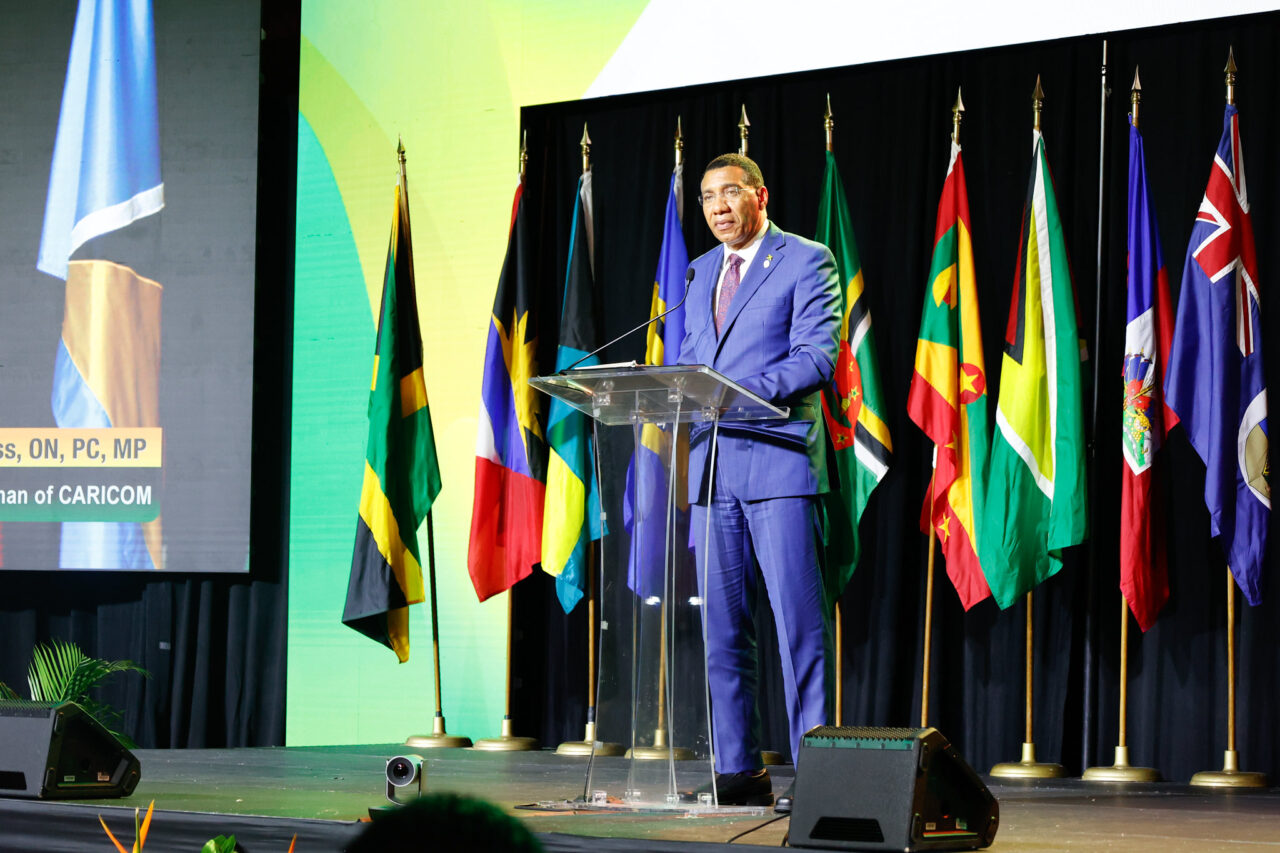It is for this reason, that the Community must continue to strongly advocate for climate justice and climate finance. Jamaica’s Prime Minister, Dr. the Most Hon. Andrew Holness, who assumed the Chairmanship of CARICOM on 1 July 2025, pledged that his country will be a “strong advocate” on the climate front. He made the commitment at the opening ceremony of the Forty-ninth Meeting of the Conference of Heads of Government of CARICOM on 6 July in Montego Bay, Jamaica. Climate finance, a matter of “the Region’s survival and prosperity”, was one of the key items on the agenda of the Meeting.

“For others, the issue of climate change may be an academic discussion between scientists trying to determine whether the data set is accurate or whether historically, climate has changed overtime, and therefore climate changing now is nothing new. But last year, just around this time, Jamaica was staring down the earliest forming and perhaps the quickest forming Category 4 hurricane, which devastated a third of our island. So, for us, climate change is not an academic discussion; climate change is real. We live it almost every day. The impact of this has to be understood at the fiscal level, need for financing, but certainly because of our size,” he pointed out during his address at the opening of the Conference.
Dr Holness added that as the Region prepares for COP30 in Brazil later this year, “our call is urgent and clear: the promises of the Paris Agreement must be met—both in emissions reductions and access to climate finance at the level and scale required.”
]]>“There can be no sustained prosperity without security,” the Prime Minister said, pointing out that urgent action is required to confront the growing problem.
“We must dismantle the influence of gangs in our communities, disrupt their financing, and cut off access to weapons,” Dr. Holness said during his address at the opening of the Forty-ninth Regular Meeting of the Conference of Heads of Government of CARICOM, which ended on 8 July in Montego Bay, Jamaica.
He quoted a 2024 report by the United Nations Office on Drugs and Crime which highlighted the worrying combination of risk factors including surging drug production in South America, the proliferation and competition of transnational and local gangs, and high availability and use of firearms [that] have contributed to soaring homicide rates.
“If the situation in Haiti is an indicator, these are not ordinary times and they require urgent action,” the Prime Minister said.
Acknowledging that the problem cannot be solved overnight, the Prime Minister said it will require “significant investment and unified public support”.
“I am on record as saying that we need to launch a war on gangs of a similar magnitude and nature to the war on terror. Aside from climate change, the threat that poses an existential threat in the near term for many of our states would be the growth of gangs. Many Caribbean states, by virtue of our history and the kind of civilisation we wish to develop, would seem to categorise gangs as a social problem; a problem caused by the alienation of youth, poverty, breakdown of social mores and values, and therefore the policy response must be or should be a social response, one that treats crime and violence as a public health crisis – and basically so, there is no question that it is a social problem why 90 per cent of persons involved in crime are males, and speaking for Jamaica, 90 per cent of those who are victims of homicide are males, so yes, there is that strong social component.
“But I believe that our society, and the way that we think about crime and violence needs to evolve to accept and understand the evolved nature of the challenge we face, and the truth is that what we are now facing is the organisation of violence. It is the organisation of violence for profit. It is not merely street level, dispossessed, socially excluded youngsters. There is a level of intelligence, a level of resources, a level of organisation that has been brought to crime, and violence is being used to support a profit motive and my own view is that policy and jurisprudence needs to evolve to address this matter,” the Prime Minister said.
Underlining the importance of security to the Community’s progress, Heads of Government invited the Secretary General of the International Criminal Police Organisation (INTERPOL), Mr. Valdecy Urquiza, as a special guest to the Meeting.
Jamaica also mounted a security exposition at the Meeting. Prime Minister Holness said the exposition is intended to spotlight “our shared commitment to building a safer, more resilient Region by exchanging ideas, innovations and best practices. It is also an opportunity for you to see how the significant investments made by the Government of Jamaica in national security over the past nine years are yielding results in crime reduction and public safety.”
]]>“Allow me to take a moment to honour the memory of Rickey Singh, the esteemed Guyana-born journalist whose fearless, incisive reporting shaped Caribbean discourse for over six decades.
“Mr. Singh passed away recently in Barbados, leaving behind a legacy of courage, integrity, and unwavering commitment to regional unity and press freedom. We extend our deepest condolences to his family, friends, and colleagues in Caribbean journalism,” Prime Minister Holness said.
Dr Holness paid tribute to Mr. Singh at the press conference, which marked the end of the Forty-ninth Regular Meeting of the Conference of Heads of Government of CARICOM in Montego Bay, Jamaica.
The CARICOM Secretariat had issued a Message of Condolence on the passing of Mr. Singh. Please read the message here.
]]>